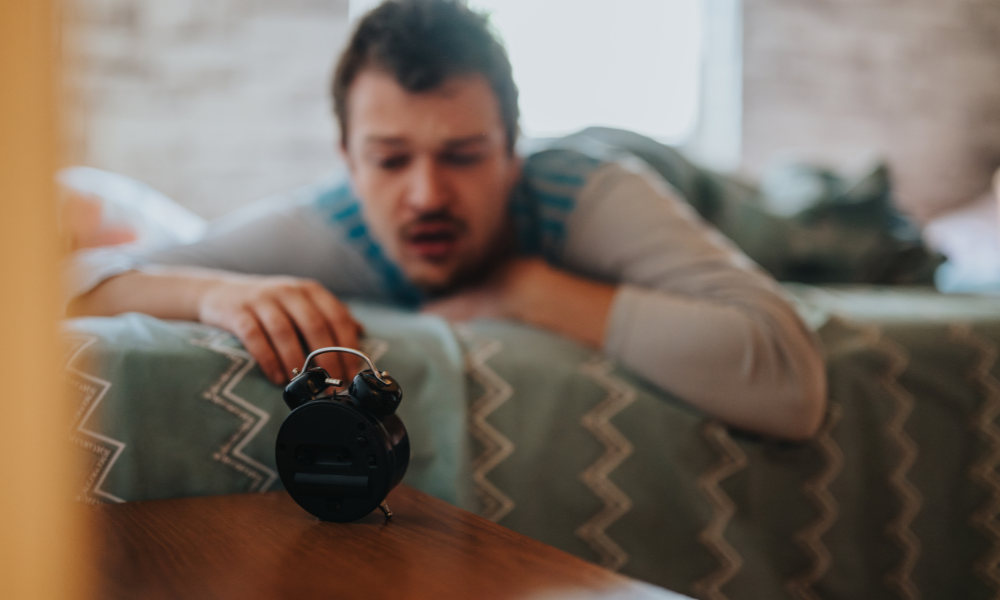Leger survey shows 54% of Canadians face sleep issues, with many unaware of serious health risks.

A recent Leger survey commissioned by Eisai Limited (Canada) found that 54 percent of Canadians struggle with falling or staying asleep.
The survey highlights significant sleep issues among Canadians. With Sleep Awareness Day on March 14, experts emphasize the growing concern over sleep health.
David Greenberg, a primary care physician with an interest in sleep, underscores sleep’s vital role.
“Sleep is not just a luxury – it’s essential for physical health, cognitive function, and emotional regulation. Ongoing poor sleep can lead to serious conditions, from high blood pressure and Type 2 diabetes to anxiety and depression,” he explains.
The survey also reveals that 51 percent of Canadians who experience sleep difficulties have tried natural remedies, vitamins, or supplements.
Meanwhile, 31 percent have turned to prescription medications, and 23 percent have explored cannabis.
However, misconceptions persist about prescription sleep aids. Among those who have not tried them, 39 percent cite concerns about dependency, while 34 percent worry about side effects.
Greenberg urges Canadians to reconsider these beliefs, noting that many people avoid modern prescription sleep medications due to outdated concerns.
He states that “there are now available medications that are safe and effective, and unlikely to be habit forming.”
According to him, these treatments can help individuals who struggle with sleep when other methods fail, especially when “their brain just can't flip the 'off' switch.”
Greenberg emphasizes the importance of prioritizing health, including good sleep, and encourages those experiencing sleep issues to speak with their healthcare provider about all available solutions.
Some Canadians do not seek any sleep assistance. The survey shows that 21 percent of those experiencing sleep difficulties have not attempted any remedies.
Additionally, 30 percent of those who have not tried prescription sleep aids believe their issues are not serious enough to consult a doctor. Experts stress that failing to address sleep problems can have long-term health consequences.
The survey also indicates that Canadians are willing to make lifestyle changes for better sleep.
One-third (33 percent) would give up alcohol, while 27 percent would eliminate caffeine. Only 5 percent would give up intimate relations in exchange for improved sleep.
Experts highlight the importance of creating a proper sleep environment, recommending a dark, cool, and quiet bedroom.
Good sleep hygiene practices, such as reading or taking a warm bath before bed, may also help. If these efforts fail, consulting a doctor may be necessary.
A panel of Canadian sleep experts has developed a consensus document to guide sleep management.
They recommend cognitive behavioural therapy as a primary approach, helping individuals modify thoughts and behaviours that disrupt sleep. The panel also advises physicians to consider safe and effective prescription medications as part of sleep treatment plans.
Greenberg stresses the need to take sleep health seriously, stating that “we've normalized poor sleep, but it's one of the most important factors in our health.”
He emphasizes that achieving good quality sleep is possible for those who have struggled with it, allowing them to wake up refreshed.
Greenberg urges anyone facing sleep difficulties to consult their doctor.



